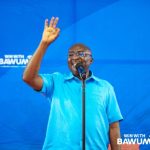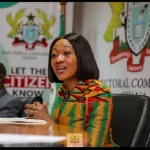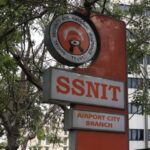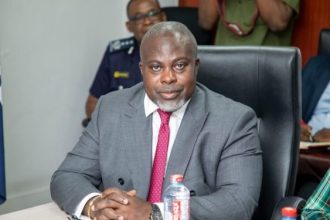The highly anticipated Electoral Commission (EC) limited voter registration, which commenced today, May 7, has been rocked with challenges preventing several people from participating in the exercise on the first day.
Reports from various centres suggest a network breakdown, which has prevented many from completing the registration process.
Areas such as Ayawaso West Wougon, Ayawaso Central, Korle Klotey, Ayawaso East, and Ayawaso North had difficulties, and so the eligible persons who thronged the centres were left disappointed since 7 a.m., when the process started.
However, the affected persons were hopeful that the EC would address the problems swiftly so that they could vote in the December presidential and parliamentary elections.
The EC has started a 21-day exercise for eligible voters towards the 2024 polls.
Ghanaians who have attained age 18 and other adult citizens who do not have voter identification cards can participate in the exercise to enable them to vote in the elections later this year.
A total of 3,277 EC personnel have been engaged for the registration exercise, which will end on May 27, 2024.
Registration will take place in all 268 district offices of the commission and an additional 785 centres to accommodate those who may find it difficult to access the district offices. Additionally, 25 public universities have been included as registration venues.
The exercise aims to register approximately 623,000 first-time voters nationwide.
The EC intends to submit the provisional voter register to the political parties between July 9 and 18, 2024, and mount an exhibition of the voter register between July 15 and 24, 2024.
The final voter register is expected to be submitted to the political parties between August 30 and September 5, 2024.
All logistics have been deployed to the centres, including arrangements for standby generators to curtail power challenges.
“We’ve had all our district offices rent generators so that in the event of ‘dumsor’, they can kick in,” EC Chairperson Jean Mensa disclosed ahead of the exercise.
“However, should there be the unexpected, we would switch on to the offline and by offline, it means the voters will be registered, and their details will be put on a pen drive that will be copied in our offices when the light returns, so the registration will not be disrupted.”















